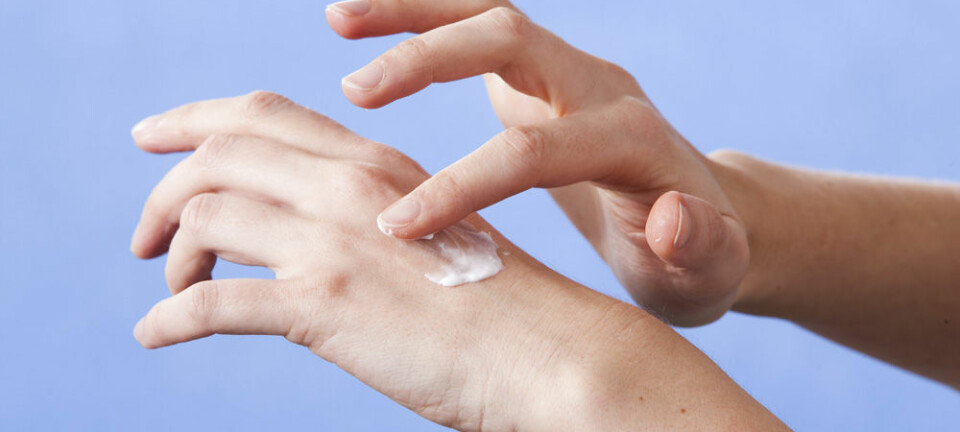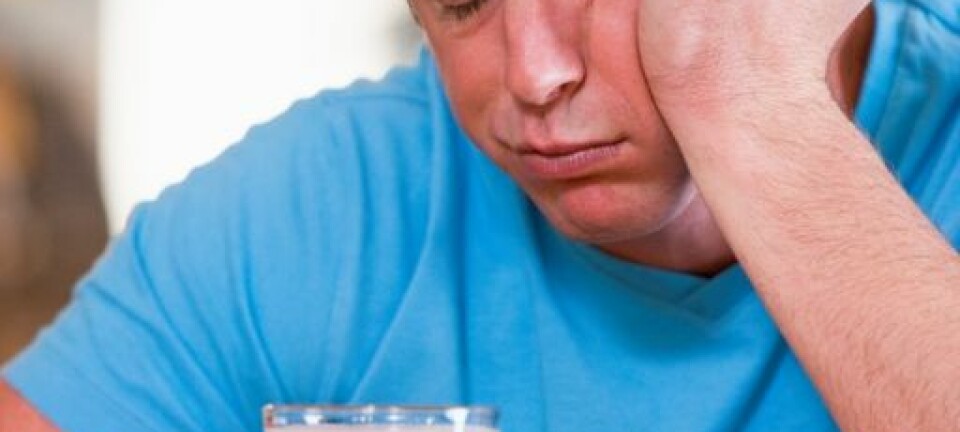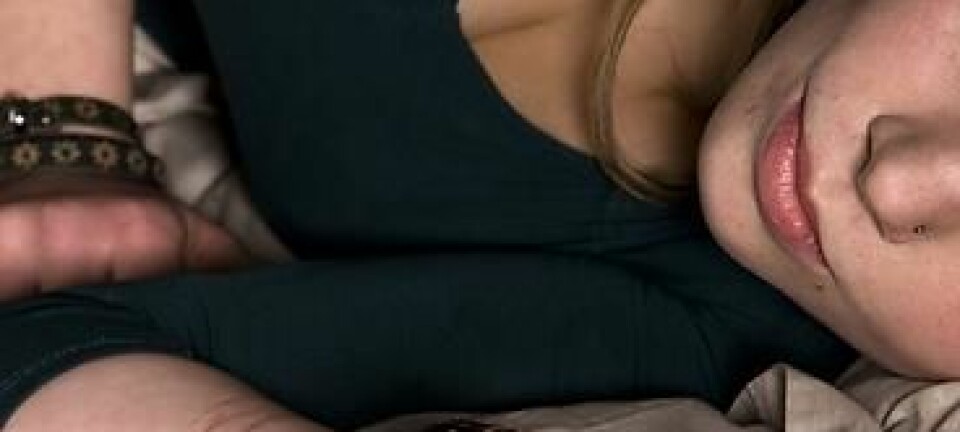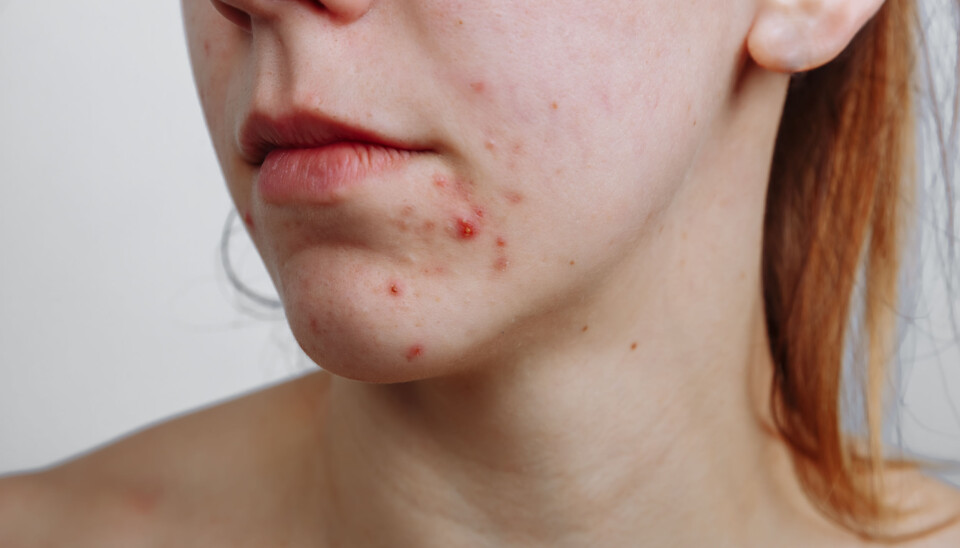
Pimples deserve more respect
Depressions and suicidal thoughts are twice as common among young people who are plagued with lots of pimples. This problem isn’t treated enough and should be taken more seriously, a new study suggests.
Denne artikkelen er over ti år gammel og kan inneholde utdatert informasjon.
Nearly 4,000 Oslo teenagers have participated in a survey about acne and psychosocial problems. In Oslo 14 percent of all 18-year-olds have moderate or serious acne, according to the study.
“Suffering from spots as a teenager or young person is so common that many don’t take the problem seriously. But pimples shouldn’t be dismissed as a bagatelle,” says Jon Anders Halvorsen.
He is a researcher at the dermatology section of the Institute of Clinical Medicine at the University of Oslo and headed the study.
Acne peaks at 16 and 18
Halvorsen and his colleagues found a clear link between pimples and psychological problems such as depression and anxiety.
They also found that lots of young people with acne encounter social problems. These youngsters have fewer friends, enjoy school less and have fewer intimate relationships with other youth.
On the upside, the study did not reveal that teenagers with pimples are bullied more than their peers or have poorer contact with their own families.
Acne usually crops up at puberty in the ages of 10-12, earlier among girls than boys. Girls have the most spots around the age of 16, while boys suffer them most around age 18.
No definite cause
The direct cause of pimples is a change in hormones. These increase production in sebaceous glands and pores get clogged.
This leads to infections and pustules.
But researchers are uncertain about why teenagers get acne. They don’t know much about whether psychological or social problems can also trigger pimples – in addition to the obvious link the other way round. A British study of twins suggests that three-quarters of the cause of acne is genetic.
Psychological scars
Teenage years are a time of life when a whole lot happens. Much of the basis for our health later in life is established at youth.
“Young people with a lot of acne can get scars on their face and upper parts of the body that will plague them the rest of their lives. Some also accrue psychological 'scars' that bother them just as long,” says Halvorsen.
He stresses that there are also lots of teenagers with pimples who get along just fine.
“Nevertheless, the link between acne and psychosocial problems is so clear that school nurses, general practitioners and other health personnel should be more aware of it.”
“Now we have very good ways of treating acne, but it’s important that the treatment starts early enough,” says the researcher.
Insufficiently treated
On the whole Halvorsen thinks serious pimple problems aren’t treated sufficiently.
He points out the paradox of parents and society spending large sums on orthodontia, partly for aesthetic reasons, but the appearance of the skin covering the rest of the face is given far less attention.
“Probably a lot of young people with serious acne problems fail to contact doctors or the health services," says Halvorsen.
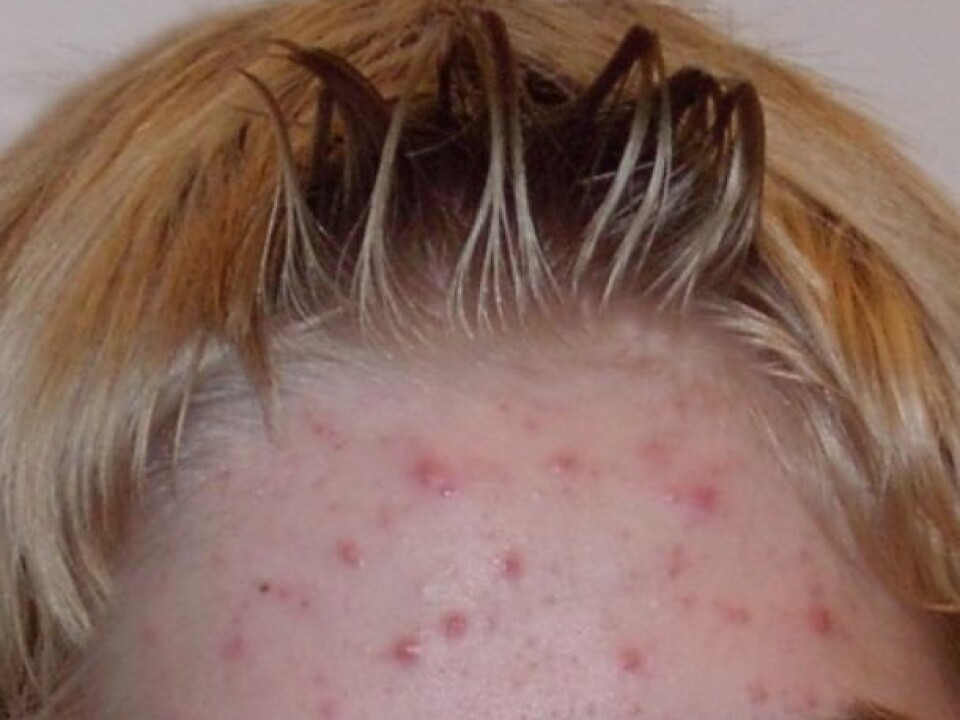
Low spirits
Although young people with acne don’t necessarily suffer clinical depression or thoughts of suicide, they can still grow unhappy and despondent. They can also withdraw socially.
“Important choices are often taken when we’re teenagers. It’s not hard to imagine that young people who suffer socially or mentally because of acne might make choices regarding their education or work that are influenced by the condition, says Halvorsen.
This is another way that pimples can have permanent consequences for young people, according to the researcher.
Treatment of scars
Facial scars caused by acne are hard to treat. The public health system offers very limited help here.
A number of private health clinics carry out such treatment and some can have a positive effect, but the treatment is often comprehensive and painful.
“Generally it’s much easier to treat acne with ointments and medicines during youth than to erase scars later at an adult age,” the dermatologist says.
Vegetables and chips
In the same study Jon Anders Halvorsen and his colleagues looked at the link between pimples and the diets of young people.
The researchers wanted to find out whether nutrition and diet can be a root cause of pimples and mental problems among young persons. But they could find no proof that dietary issues represent a risk factor.
“What we did find, however, is that girls who didn’t eat vegetable daily have a 40 percent higher rate of acne,” says Halvorsen.
Among boys the medical team found a minor link between acne and high consumption of potato chips and chocolate.
The researchers found no definite connection between teenage use of soft drinks, alcohol and tobacco and the development of pimples.
A whopping 80 percent of the youth at high schools in Oslo participated in the survey. Few comparably extensive studies have been conducted internationally.
The most relevant is a study from Australia, and it pointed in the same direction as the finds from Norway.
-------------------------------------------------------------
Read the article in Norwegian at forskning.no
Translated by: Glenn Ostling







